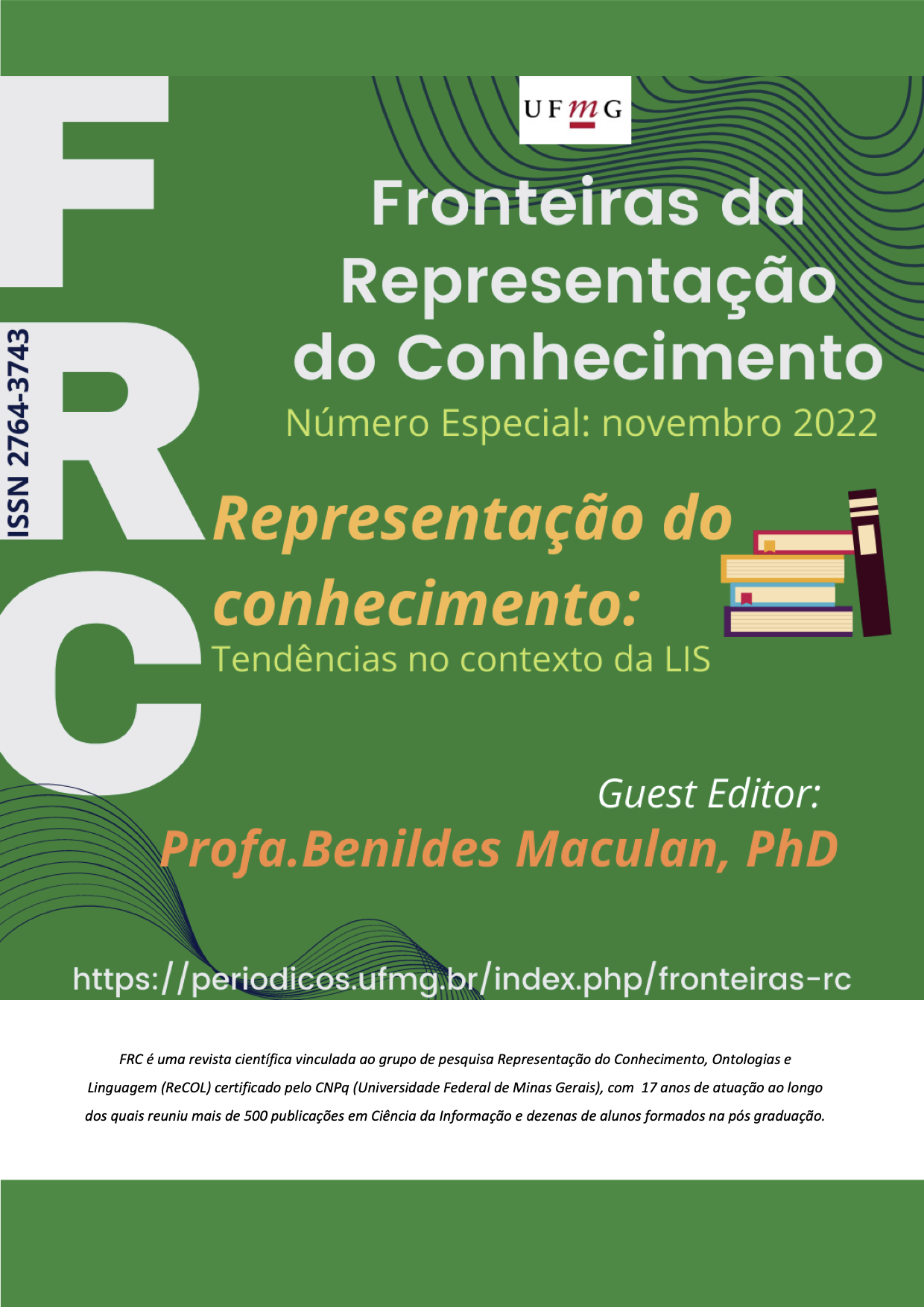The representation of knowledge in contemporary times
Main Article Content
Abstract
From a postmodern perspective, the traditional view of the process of knowledge construction based on rationality is put in check. From the same perspective, the parameters of a modern science, based on a belief of a simplification of reality and in the search for formal causalities, are questioned. Thinking about knowledge representation in contemporaneity must, therefore, consider that knowledge and its construction involve plural processes that are anchored in sociocultural contexts. Reflecting on knowledge representation in the context of Library and Information Science (LIS), consequently, presupposes understanding how knowledge is constructed from its records, also called documents. Moreover, it presupposes reflecting on how such construction and the process of its representation are profoundly dependent on pragmatic and sociocultural contexts. Taking as a premise this relationship between knowledge, its representation and the influences of the contexts where they are generated and/or interpreted, our objective is to reflect on the foundations of the field of Knowledge Organization (KO) and, more specifically, Documentary Analysis (DA). Here we understand DA both as a methodological discipline that guides knowledge representation itself within the broader field of KO, and as a specific activity through which knowledge records – documents – are analyzed, synthetized and represented. From a methodological point of view, we will list the main differences between the modern and postmodern views on the process of knowledge construction, we will discuss the consequences for its representation in the scope of KO, and we will reflect on the pragmatic parameters involved in the operations performed upon knowledge in contemporaneity.
Article Details
Issue
Section

This work is licensed under a Creative Commons Attribution 4.0 International License.
From: https://creativecommons.org/licenses/by/4.0/
You are free to:
- Share — copy and redistribute the material in any medium or format
- Adapt — remix, transform, and build upon the material
- for any purpose, even commercially.
- The licensor cannot revoke these freedoms as long as you follow the license terms.
Under the following terms:
-
Attribution — You must give appropriate credit, provide a link to the license, and indicate if changes were made. You may do so in any reasonable manner, but not in any way that suggests the licensor endorses you or your use.
- No additional restrictions — You may not apply legal terms or technological measures that legally restrict others from doing anything the license permits.
Notices:
- You do not have to comply with the license for elements of the material in the public domain or where your use is permitted by an applicable exception or limitation.
- No warranties are given. The license may not give you all of the permissions necessary for your intended use. For example, other rights such as publicity, privacy, or moral rights may limit how you use the material.


